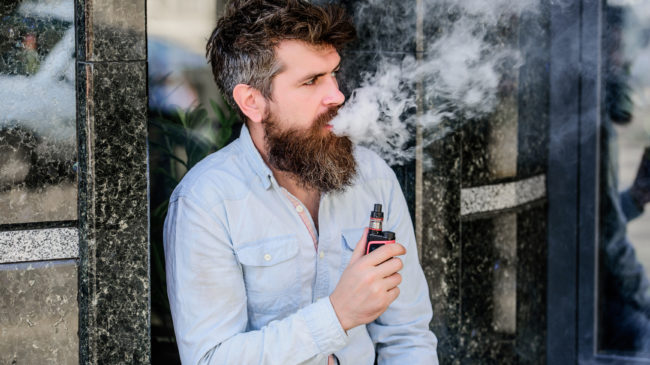In the last few weeks, numerous sources have suggested vaping could be a risk factor for either contracting or increasing the severity of COVID-19. These reports are almost entirely based on the speculation from anti-vaping advocates, who rarely receive significant pushback.
Appearing on NBC’s Today Show on March 23, Surgeon General Jerome Adams postulated, without evidence, that vaping could be the reason young people may be at higher risk from COVID-19 than previously thought. “There are theories that it could be because we know we have a higher proportion of people in the United States and also in Italy who vape,” said Adams.
But today the Food and Drug Administration (FDA) told Bloomberg News, “E-cigarette use can expose the lungs to toxic chemicals, but whether those exposures increase the risk of COVID-19 is not known.”
While seemingly anodyne, the statement differs significantly from those of Nora Volkow, director of the National Institute on Drug Abuse (NIDA). Volkow, recently wrote in the Annals of Internal Medicine that vapers could be at high risk for coronavirus.
Similarly, last week, Massachusetts Attorney General Maura Healey went so far to issue an advisory warning that vaping could worsen the spread of COVID-19. And last month, New York City Mayor Bill de Blasio claimed, “If you are a smoker or a vaper that does make you more vulnerable.”
Following an apparently unclear email exchange with an FDA official, Bloomberg News published a story with the headline: “Vaping Could Compound Health Risks Tied to Virus, FDA Says,” that prompted Iowa Attorney General Tom Miller and 12 public health experts to write to the FDA to complain. The signatories warned the FDA that if its communications are, “arbitrary and ill-conceived, spreading fear and confusion with little scientific basis and with unpredictable consequences, then it would be better if FDA and its media spokespeople did not comment further at this time.”
Thankfully, the FDA finally appears to be taking this advice seriously. There is currently no evidence from anywhere in the world showing vapers to be at higher risk for COVID-19.
The Science Media Research Center recently released statements from public health experts to help reporters understand what we do know about smoking, vaping, and COVID-19. “There is no evidence that vaping increases the risk of infection or progression to severe conditions of COVID-19,” said Dr. Caitlin Notley. She added that since switching from smoking to vaping improves cardiovascular and respiratory conditions, smokers who switch “might be expected to have a better prognosis if infected by COVID-19.”
Similar to last year’s outbreak of lung illnesses that were initially wrongly associated with conventional e-cigarettes, but later found to be the result of adulterated black market marijuana products, much of the communication around vaping and COVID-19 is targeted at young people in an effort to get them to stop vaping.
The Campaign for Tobacco Free-Kids (CTFK) and Parents Against Vaping Electronic Cigarettes (PAVE) has consistently promoted stories linking vaping and the coronavirus. On April 15, for example, they even promoted a campaign to tell the White House that vape shops are not essential businesses.
“There is growing concern among public health experts that e-cigarettes can put users at greater risk for serious complications from COVID-19, these products are addicting our kids, and they have not been proven to help smokers quit,” says CTFK.
The statement is disingenuous. E-cigarettes have been proven beyond any reasonable doubt to be far safer than combustible cigarettes and consistently shown to help smokers quit. Italy, Spain, France, and Switzerland are keeping their vape shops open because they recognize the public health benefit of ensuring access to safer alternatives to cigarettes.
It’s time for anti-vaping groups to stick to the facts and stop spreading fear and misinformation about a product that is saving millions of lives both in the U.S. and across the globe. Stopping kids from vaping is undoubtedly a noble goal, but it’s not an excuse for misleading the public in ways that could prevent smokers from switching to a dramatically safer product.

